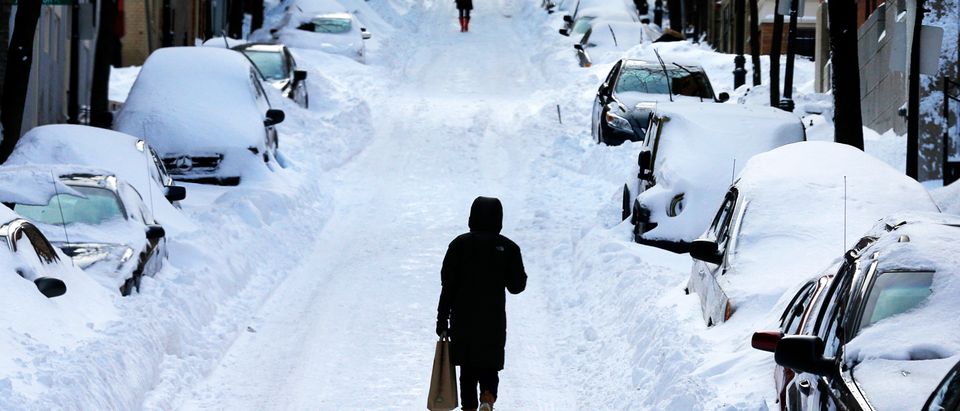New England has a growing fuel security problem that will make keeping the lights on more “tenuous,” especially during winter months, the region’s grid operator warned.
January’s cold snap only highlighted problems with the region’s growing reliance on natural gas without adequate pipeline capacity, and the problem will only grow as more coal, oil and nuclear power plants shut down.
“This growing fuel security risk is making reliable operations more tenuous,” Gordon van Welie, president of ISO New England, said on Wednesday during his “State of the Grid” presentation.
Van Welie pointed to a recent ISO study that found “rolling blackouts” were needed in 19 out of 23 scenarios to keep the lights on during supply crunches in 2025, based on current trends.
“The results show that the trends affecting the regional power system, particularly the retirements of oil generators, could worsen fuel-security risk unless they are addressed,” van Welie said.
“Extended outages, or retirements, of the remaining nuclear plants would have significant detrimental effects,” he said, adding that “having stored fuels like LNG and oil at dual-fuel units, combined with imports from Canadian hydro facilities, could be one key to maintaining reliability.”
“However, building new energy infrastructure in New England is difficult, and emissions restrictions are tightening dual-fuel generators’ ability to use oil,” van Welie said.
Power plants slated for closure, though rarely used during the year, are still necessary to keep the lights on during extreme cold spells. Environmental policies and low-priced natural gas have pushed some plants to retire early.
This shows that power markets are working, van Welie said, but it also highlights a serious problem — fuel insecurity.
NOW WATCH:
“Natural gas demand continues to grow, for both heating and power generation, but the infrastructure that delivers natural gas to New England has only expanded incrementally,” van Welie said.
New England has enough energy resources, mostly through natural gas and nuclear, to meet demand, but when temperatures dropped from late December to early January, pipeline constraints sent natural gas prices through the roof.
So, utilities switched to burning cheaper coal and oil to keep the power flowing, which staved off rolling blackouts. But van Welie warned the plants that helped keep the lights on this winter may not be there in the coming years.
Van Welie said “coal and oil power plants rarely run most of the year, but they are still needed during extreme weather events. Nuclear power is also a key contributor.” Two of the region’s four nuclear plants are set to retire, along with coal and oil plants.
Gas supplies were so tight during the freeze that Boston relied on Russian liquefied natural gas to keep the lights on. Some large oil power plants had to run for so long, they were just days away from running out of the stuff and were only saved because the cold spell ended.
“In the future, many of the resources we relied on this winter may not be around when extreme weather limits natural gas availability,” van Welie said.
“Liquefied natural gas, or LNG, was a key component of the fuel used by natural gas plants this time, but LNG is a global commodity and may only be available at very high prices,” he said.
“As it happens, LNG cargoes were drawn to New England during the cold spell because the prices in New England were the highest in the world,” van Welie added.
Follow Michael on Facebook and Twitter
All content created by the Daily Caller News Foundation, an independent and nonpartisan newswire service, is available without charge to any legitimate news publisher that can provide a large audience. All republished articles must include our logo, our reporter’s byline and their DCNF affiliation. For any questions about our guidelines or partnering with us, please contact licensing@dailycallernewsfoundation.org.


